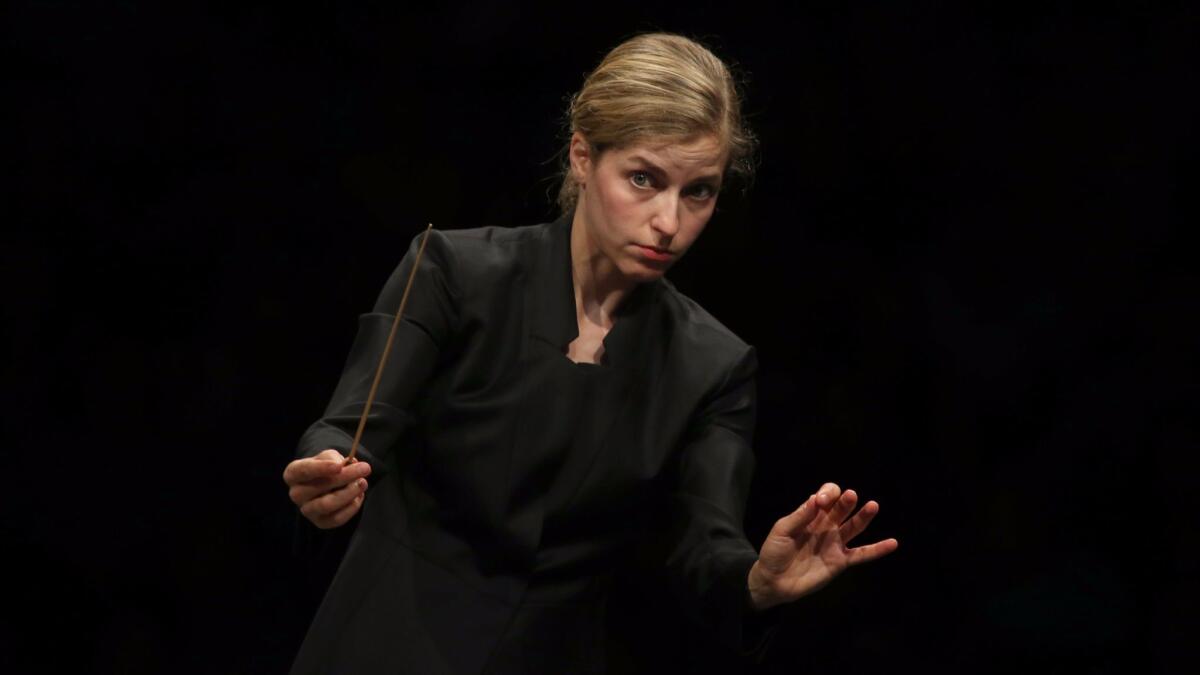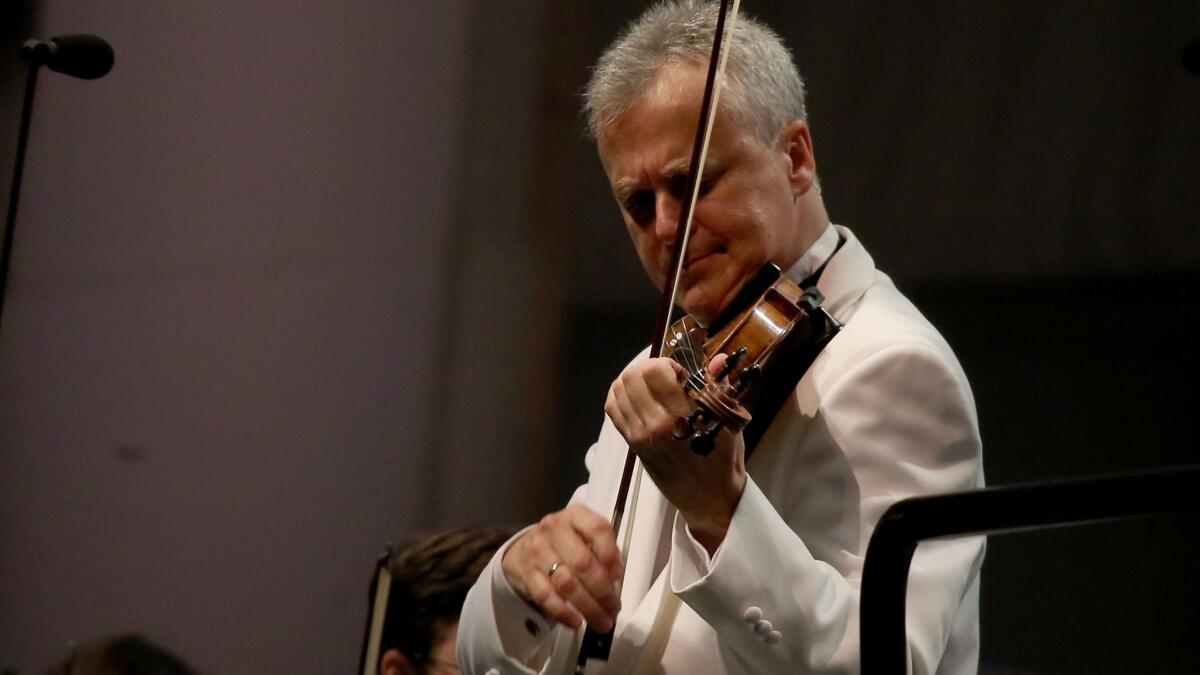Review: A rising conductor makes an impressive L.A. Phil debut at the Bowl

- Share via
Karina Canellakis first appeared on local radar in January 2015 when she guest-conducted — and played violin with — the Los Angeles Chamber Orchestra. She made quite an impression in repertoire ranging from Vivaldi and Schubert to Peteris Vasks and John Adams.
Whiz ahead to Tuesday night when Canellakis, her international career humming along in her mid-30s, made her first appearance with the Los Angeles Philharmonic at the Hollywood Bowl.
Again, the ensemble was chamber-sized, but this time the menu was completely safe and homogeneous: three of Mendelssohn’s most often-played compositions, the Overture to “A Midsummer Night’s Dream,” the Violin Concerto and the Symphony No. 4 (“Italian”). Make that four, because the high-spirited Canellakis surprised the audience — many of whom were already headed for the exits — by adding the even more famous “Wedding March” as an encore to this midsummer night at the Bowl.
Mendelssohn as played by a chamber orchestra does make a lot of sense; Yannick Nézet-Séguin used the Chamber Orchestra of Europe effectively in his bustling new set of the five Mendelssohn symphonies from Deutsche Grammophon. The leaner ensemble makes it easier for a conductor to emphasize the classical aspect of the music, to impart more drive and shine a clearer light into the textures.
All of which Canellakis did, impressively. She has a graceful, flowing, confident baton technique and a repertoire of facial expressions that could be quizzical, mischievous, determined or forceful. She gives the impression that she savors the music, and what she communicates through her motions and expressions could be heard in the playing of the L.A. Phil.

As a soloist in the Violin Concerto, concertmaster Martin Chalifour turned in one of his best performances, playing it straight in classical style with flawless technique and a tight, even vibrato — entirely comfortable and fitting in this context. Canellakis kept the strings focused and together in the fairy music of the Overture, and in the “Italian” Symphony imparted plenty of driving, fast-paced vigor that turned fierce in the Saltarello finale.
What I didn’t hear was much of a distinctive voice in Canellakis — though that would be hard to produce in this particular repertoire under the Bowl’s tight rehearsal conditions. But there were flashes of something going on, most noticeably in the third movement of the “Italian” Symphony, where individual ideas in phrasing came gushing in swiftly moving currents. Someday we’ll have to hear what she can do with larger-scaled pieces like the Shostakovich Eighth Symphony that brought her acclaim in a last-minute substitution in Dallas in 2014.
Meanwhile the sound system contributed bizarre distortions. Sound seemed to bounce off the tower to the right of the lower boxes, creating an aftershock a split second after the notes were sounded. It brought to mind the old joke about unfortunate concert halls with echo problems: At least you’re getting two concerts for the price of one. In the case of Karina Canellakis, I wouldn’t mind that.
SIGN UP for the free Essential Arts & Culture newsletter »
Support coverage of the arts. Share this article.
MORE MUSIC COVERAGE:
Barbara Cook, a Broadway singer who revealed the great American songbook in a new light
When Dennis Prager conducts Santa Monica Symphony, there’s no avoiding politics
‘David Lynch, the Musical’? Not quite, but close, in ‘Artaud in the Black Lodge’
More to Read
The biggest entertainment stories
Get our big stories about Hollywood, film, television, music, arts, culture and more right in your inbox as soon as they publish.
You may occasionally receive promotional content from the Los Angeles Times.










